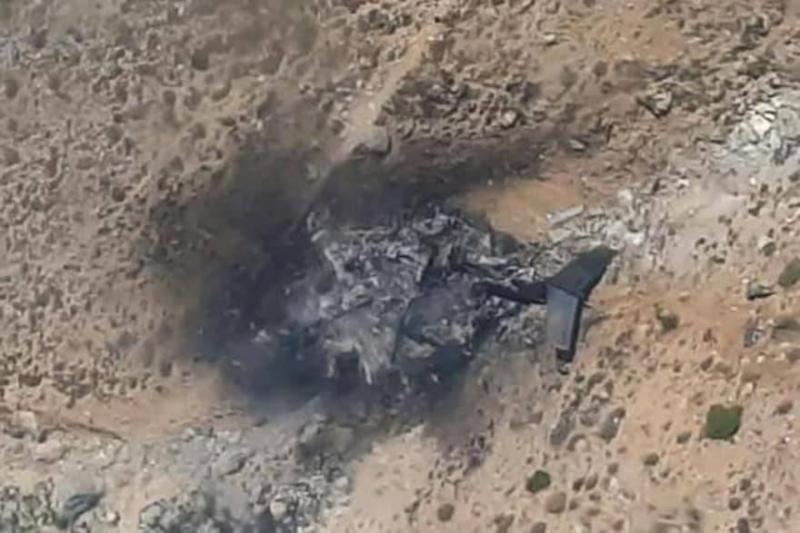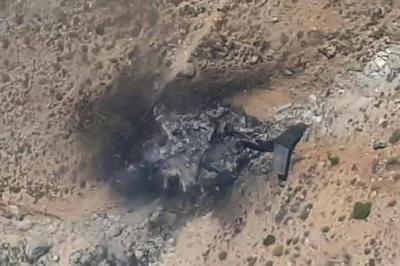Eight people, consisting of the crew of a Russian water bomber, were killed on Saturday in Turkey, raising the human toll from recent natural disasters in the country. Moscow and Ankara reported that the crew, which was engaged in combating a fire in Kahramanmaraş province in southern Turkey, included five Russians and three Turks.
This incident brings the death toll in Turkey, which has been facing massive fires in the south since last month, and has been subjected this week to heavy rains resulting in floods that have claimed over 50 lives in the north, according to preliminary reports. Turkish state TV TRT reported that the Russian plane crashed on its way back after dropping its water load to extinguish a fire sparked by lightning.
Television channels broadcast images from the crash site showing a column of smoke rising from a mountainous area that is difficult to access. In response, a large number of rescue personnel were sent to the site, along with a Turkish reconnaissance aircraft and helicopter. The Turkish General Directorate of Forestry had rented the plane, a Beriev Be-200, to combat the severe fires that had swept across southern Turkey in recent weeks. It was dispatched on Saturday to extinguish a fire that erupted due to a lightning strike.
Russian President Vladimir Putin expressed his condolences to Turkish President Recep Tayyip Erdoğan, stating, "The pain of this loss unites us," according to the Kremlin. Turkish Foreign Minister Mevlüt Çavuşoğlu also extended "condolences to our nation and the Russian people," emphasizing, "We will not forget this heroic sacrifice."
Turkish Governor of Kahramanmaraş, Ömer Faruk Coşkun, was quoted by Turkish media saying, "We sent this plane to extinguish the fire. We first lost contact with it, then it crashed."
This aerial incident occurred as Turkey was about to announce that it had extinguished the fires that swept its southern coast in late July and early August, which caused the deaths of eight people. Authorities had previously announced that they had contained all the fires, only for new hotspots to be detected, one of which is in Kahramanmaraş.
These fires highlighted Turkey's lack of adequate aerial resources to combat fires, leading to intense criticism of Erdoğan's government. Consequently, Ankara was compelled to hire several aircraft from Israel and Russia, while Spain also sent a water bomber to assist.
In addition to the fires, Turkey has experienced record rainfall that caused flash floods, resulting in at least 55 deaths in the north. Rescue teams on Saturday raced against time to find survivors under the rubble of dozens of homes that collapsed due to the floods affecting areas along the Black Sea coast. The village of Babacık, which was swept away by the floods in Sinop province, stands as a testament to the disaster's magnitude, as 40 homes and the two bridges connecting to it were destroyed.
After the shock, voices began to rise with questions and criticisms. Survivors accused local authorities of failing to declare a state of alert quickly enough. Commentators pointed out the risks posed by the construction of several buildings in flood-prone areas.
Many experts believe that natural disasters like those currently unfolding in Turkey are likely to become more frequent and severe due to human-induced climate change. Several politicians and associations have intensified pressure on President Erdoğan to take drastic measures to reduce greenhouse gas emissions, noting that Turkey is one of the few countries that has not adopted the Paris Climate Agreement of 2015.




